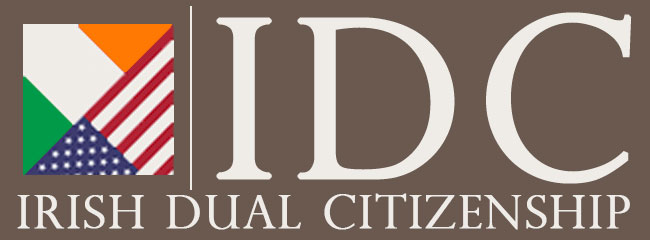Irish Taxation and Dual Citizenship
If you are a dual citizen of Ireland and the U.S., it means you are entitled to the rights that being a citizen of Ireland and the U.S affords, such as the right to live, work, and vote. It also means you are required to pay taxes in accordance with the tax laws and regulations of Ireland and the U.S. Understanding how the tax systems of the two countries operate is important in order to increase tax benefits and keep tax liabilities to a minimum.
Taxation and Thresholds in Ireland
Taxation in Ireland is determined by the residency status of the citizen. Tax liability is decided by multiple factors, but the general rule is: if you live in Ireland, you will be required to pay tax. This means that if you are an Irish dual citizen who does not live in Ireland, you will not have to pay certain taxes.
Ireland’s taxation uses brackets known as “tax rate bands”. The standard tax rate bands are taxed at a rate of 20%. All income above this threshold is taxed at 40%. Tax rate bands are as follows:
- Single person: €40,000
- Married couple with only one source of earnings: €49,000
- Married couple with two sources of income: €78,000
- For a single parent, or widowed parent, or surviving civil partner: €44,000
Taxes are paid by filing a tax return. The tax year runs from January 1 to December 31, and the amount of tax you pay will be determined by how many days you are in Ireland throughout a tax year. You are tax resident in Ireland if you are in Ireland for 183 days or more during the course of a tax year, or you are in Ireland for 280 days or more over 2 continuous tax years. In this case, you will be considered a resident for the second tax year.
If you travel between Ireland and the U.S., Irish tax law will calculate the total number of days you have been in Ireland during a tax year in order to establish if you are a tax resident and liable to pay tax.
Residence Status
Your residence in Ireland is calculated over the course of a number of years in order to establish your “ordinary residence”. If you have lived in Ireland for the 3 tax years before, Irish regulations deem you an “ordinary resident”. This status will only stop if you have been a non-resident for 3 consecutive tax years.
If you are married or in a civil partnership, your status is reviewed individually. And if your spouse is not a resident, but you are, you are assessed as single for tax reasons.
If you live and work in Ireland, but your spouse or civil partner does not and is without income; meaning you are the sole source of income, you may be eligible to apply for the married or civil partner’s tax credit and the higher tax rate band.
Tax and Domicile
Your residence and domicile status are considered in relation to Income Tax, Inheritance Tax, Deposit Interest Retention Tax, Capital Gains Tax, and Gift Tax.
The country where you have permanent residence is known as your domicile.
If you move to a different country with the intention to live there full-time, this would be your “domicile of choice”, as opposed to your “domicile of origin”, which is your place of birth.
If you reside in Ireland, and have a total worldwide income that amounts to more than €1m, you own Irish property that is worth more than €5m, and your Irish income tax for the year is below €200,000, you may have to pay a domicile levy. This is paid each year on or before 31 October in the year prior to the date of review, which is done through self-assessment.
Filing Tax Returns
Ireland’s income tax is known as Pay as You Earn (PAYE). This tax refers to income from employment and self-employment, and well as most other sources of income.
Irish residents are also required to pay Universal Social Charge (USC), which is a tax on income that is made before any capital allowances, losses or pension contribution relief support is applied.
In order to file tax returns, you will need to access and register with the Revenue Online Service (ROS), where you can find all the relevant and necessary forms you will need to complete. If you are not registered, you can Register for ROS.
The ROS also has provisions whereby you can record and manage your tax filings for Income Tax, PAYE or Capital Acquisition Tax, by accessing the “Manage My Record” card on the myAccount page. You can also manage functions to do with filing tax returns in the “Pay and File System” section of ROS. You will need a Personal public Service Number (PPSN), a reference number that is used to complete many tasks, and it is The Department of Social Protection (DSP) who is responsible for assigning PPSNs.
If you are a non-resident in Ireland, you can contact the DSP’s Client Identity Services (CIS) at cis@welfare.ie, or +353 71 9672616, if calling from outside of Ireland, and they will provide support.
U.S. Taxation
The U.S. has a global taxation model, and dual citizens pay tax on their total worldwide income, income earned both in the U.S. and other countries.
In respect of dual citizens of Ireland and the U.S., they have signed treaties that prevent the double taxation of income.
Double Taxation Agreement
Ireland and the U.S. have in place a Double Taxation Agreement (DTA), covering Income Tax, Corporation Tax, Universal Social Charge, and Capital Gains Tax. These treaties safeguard against double taxation, and are relevant to dual citizens who work and pay tax abroad.
If you are a non-resident, and you pay Irish and foreign tax on your income, you may qualify for tax relief from your country of residence.
U.S. tax treaties are advantageous to U.S. taxpayers who have earnings or do business in other countries.
Foreign Earned Income Exclusion (FEIE)
The Foreign Earned Income Exclusion lowers the taxes U.S. dual citizens have to pay.
It reduces or removes the U.S. tax liability on some or all of your income earned abroad on your tax return. It means that qualifying U.S. citizens living outside of the U.S. are eligible to have a certain amount of their foreign income excluded from U.S. taxes.
If you live and work outside the U.S., and are eligible, up to $126,500 of income earned abroad can be eliminated. Establishing if you qualify or not is done so through the bona fide residence test, or the physical presence test.
Bona Fide Residence Test– The Bona Fide Residence Test requires you prove economic and social links to your new home country and place of residence. For example, proof of payment of taxes, and utility bills to show you are a legal resident of the country.
Physical Presence Test– You are required to present proof to the Inland Revenue Service (IRS) that shows you have spent at least 330 days outside of the U.S.
The Foreign Tax Credit
The Foreign Tax Credit allows U.S. taxpayers to offset taxes made in other countries against their U.S. tax liability. The foreign tax credit reduces U.S. tax obligations and gives credit on taxes already paid to another qualifying country on products of foreign income.
If you plan to reside in Ireland on a permanent basis, you do have the option to renounce your U.S. citizenship, which would exempt you from paying U.S. taxes. Of course, this would be a definitive and final course of action, and you would be required to pay “exit” and “expatriate” taxes.
In all events, it is always necessary to seek the counsel of a lawyer or tax accountant to determine the best pathway for you depending on your personal needs and circumstances.
If you would like further information about taxation as a dual citizen, or about applying for Irish citizenship, you can contact us directly, and one of our friendly experts will be in touch to answer your questions.
This page was last updated with help by Marco Permunian





